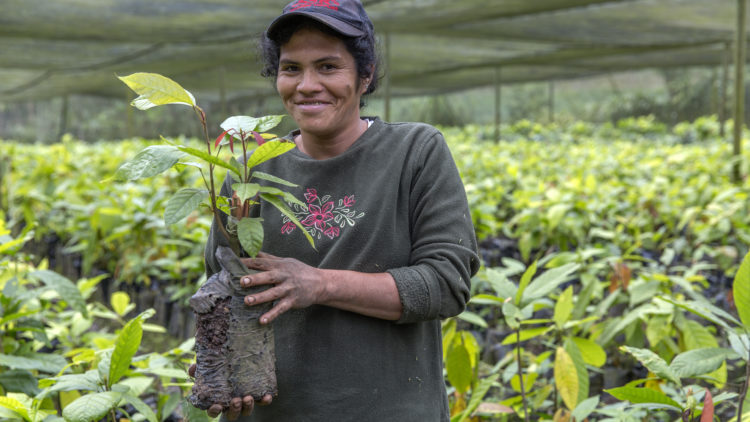
Coffee is the second most traded commodity in the world, second only to crude oil. That is why it is important that a cup of Perkee coffee is created using environmentally and ethically sustainable practices.
Perkee’s owner, BM has very strong business ethics and these have been recognised by Planet Mark accreditation and the Sustainable Restaurant Association (SRA)
Sustainable coffee farming
When BM chose the Soppexcca cooperative and Camocim Estate as their coffee partners, sustainability was at the top of their list. The Soppexcca and Camocim are sustainable businesses for many reasons:
- The coop is run democratically and promotes gender equality and women’s empowerment.
- They produce their own organic fertiliser using coffee cherry pulp and animal waste.
- Some of the cooperative members are developing systems to recycle the water they use during the bean-washing process.
- A programme to preserve the tall shady trees in the coffee plantations provides shade and a fertile environment for wildlife, as well as preventing landslides.
- Soppexcca has been recognised with a sustainability award by the Speciality Coffee Association of America.
- Perkee Santo is organic and biodynamic, the coffee beans are grown without pesticides or chemical additives
We supply all our clients with Perkee Ecoffee reusable cups. This prevents single-use cups going into landfill.
Carbon reduction
Perkee Soppexcca coffee is carbon neutral – the equivalent to 48 580kg CO2 is offset.
Perkee Soppexcca’s packaging contains no aluminium. It is made from climate smart green polyethylene which is produced from sugar cane on non-food producing land in Brazil. This reduces the carbon footprint on Perkee Soppexcca’s packaging by over 45% when compared to packaging containing aluminium.
Perkee Santo’s bags are fully compostable.